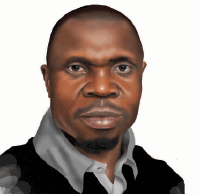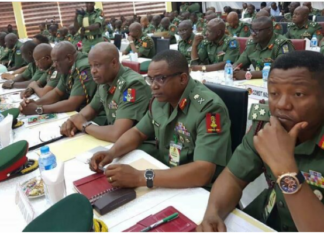By Bob Etemiku
Most Nigerians have not forgotten that when Olusegun Obasanjo was president, some saw him as a veritable bull in the China shop of corruption.
So zealous was he to bring corruption to its knees that he got an equally zealous individual Nuhu Ribadu aboard to rev up the Act establishing the Economic and Financial Crimes Commission (EFCC).
And so revved up was the fight against corruption in those hey days of the EFCC’s corruption fight that allegations of selective prosecution began to make the rounds.
I remember at that time too that on the eve of a certain election, the EFCC came up with an ‘advisory’ of persons in the party of Obasanjo considered unfit for re-election.
I remember as well that former Governor Orji Uzor Kalu took up the rhetorical gauntlet and dismissed the advisories as ‘adversarial’, as if to knock the sail out of the lopsidedness in the fight against corruption.
But to put the matter to rest and put traducers in their place, the National Assembly summoned the erstwhile EFCC Chairman to appear before it to explain why those who had been hauled in for questioning and prosecution appeared to be all Obasanjo’s antagonists in one way or the other.
In a statement which was relayed again and again on Channels television, the former EFCC chairman made it clear that day that nearly everyone who had been hauled in were members of the party in power.
Not one member of the opposition had been arrested, detained or was being investigated at the time the EFCC person appeared before the National Assembly.
But there are many questions today surrounding President Muhammadu Buhari’s anti-corruption war or crusade. Of course he has the same temperament on corruption with that of Obasanjo.
However, what Obasanjo had in excess in circumspection in terms of the rationale behind hauling in only the opposition is utterly lacking in this war. Nearly everyone that’s been hauled in is in the opposition or was somewhat in an ‘adversarial’ predisposition with Buhari.
Take the examples of Raymond Dokpesi, Senate President Bukola Saraki and erstwhile National Security Adviser, Mohammed Dasuki.
The latter is the first son of the deposed Sultan of Sokoto, Ibrahim Dasuki, and was the person who personally saw to the incarceration Buhari in the 1985 palace coup organised by Ibrahim Babangida.
Until his appointment as NSA by former President Goodluck Jonathan, Dasuki was managing director of the Nigerian Security Printing and Minting Corporation. He resigned after the corporation was privatised by Obasanjo.
Yet in spite of the mountain of evidence seemingly stacked against all of these people in terms of underhand and untoward dealings in matters of state, there is corresponding evidence, at least in the public domain that there are key members of Buhari’s party and his administrationn who have soiled hands as well.
What we should be seeing is some balance. On the eve of the long wait before Buhari’s saintly ministers were unveiled and anointed, countless stories of how former governors and members of the now-ruling party, ran their states aground.
I cannot as a person verify the claim that a lot of the monies that went into the campaign of Buhari actually came from funds that were supposed to be for capital projects in the states in question. Was this a legal thing for these people to have done?
The only thing that a lot of Nigerians are holding on to, to buttress the wanton profligacy all around is that even in states that had no business asking for a bailout and states that had governors returning re-elected, civil servants are still being owed salaries for as long as six-12 months.
Not one of these individuals has been arrested, interrogated and is facing corruption charges.
Aside from the political terrain, there are other aspects of the campaign against corruption that establishes Mr president as somewhat antithetical to the strengthening of the institutions that help with the fight against corruption.
Take a look at the NCC-MTNgate affair that’s playing out currently.
In October 2015, the Nigerian Communications Commission (NCC) realised that a South African communications company, MTN had violated a law which instructed the telecommunications company to cut off all lines that were not registered with the telecommunications company.
So the NCC wielded its big stick and imposed a hefty fine of $5.2 billion. As soon as the news hit town, all manner of arguments and speculations about the manner the scenario was going to play out hit the ground running.
The country of origin of the telecommunications company, South Africa, in October 2014 last year seized $15 million belonging to Nigeria, allegedly bungled by embattled Dasuki’s effort to illegally procure arms to Nigeria.
Nigeria applied to South Africa for the monies to be returned but the South African government did not budge, insisting that ‘due process’ must be applied before the funds would be returned to the Nigerian government.
But before the storm generated by that seizure subsided, South Africa again busted another illegal Nigerian arms deal. As we speak, South Africa stands its ground concerning the seized Nigerian cash.
But by far the most remarkable twist to the NCC-MTNgate was the announcement by Communications Minister, Adebayo Shittu, a lawyer, that whatever decision that would be taken over the fine imposed by the NCC on MTN for breaking our laws was going to be made by Mr president himself.
I thought this was going to be impossible, and this is because if for anything, the NCC Act is the established law of the land put in place to deal with issues as the one involving the NCC-MTN gate.
But I was shocked beyond words to read on the pages of most Nigerian newspapers that the NCC had decided to reduce the fine imposed on MTN from $5.2 billion to $3.5billion – and that this was an instruction from the Presidency.
The NCC communicated this initial reduction to the MTN in a letter but later communicated a further reduction of the fine through another letter.
Things cannot be messier than this. In the first instance when Dasuki allegedly bungled the arms deal with South Africa and we had to go running to South Africa like some third rate African country, our ego in the international community was bruised beyond measure.
But now, we are the one country in the whole world that cannot seem to get things right the first, second or third time. And why do I say this? Why would it have to be the president giving a counter instruction, like a generalissimo, when the laws setting up the NCC are clear if those laws get contravened?
Nigeria will never be a true democracy, and indeed corruption cannot be mitigated if acts of impunity get a fillip from the highest quarters. Nigeria does not need body language but justice. And justice is not justice when it is lopsided and we get to shift the goal post only when it suits us.
We must remember that democracy is not about strong individuals but about strong institutions that work without the body language of a strong individual. That fact alone, together with its import, is playing out in Lagos state where Mr. Akinwunmi Ambode seems to be unable to match his predecessor in body language and the political will to do the needful.
• Etemiku, ANEEJ, Benin City. majirioghene@aneej.org.













